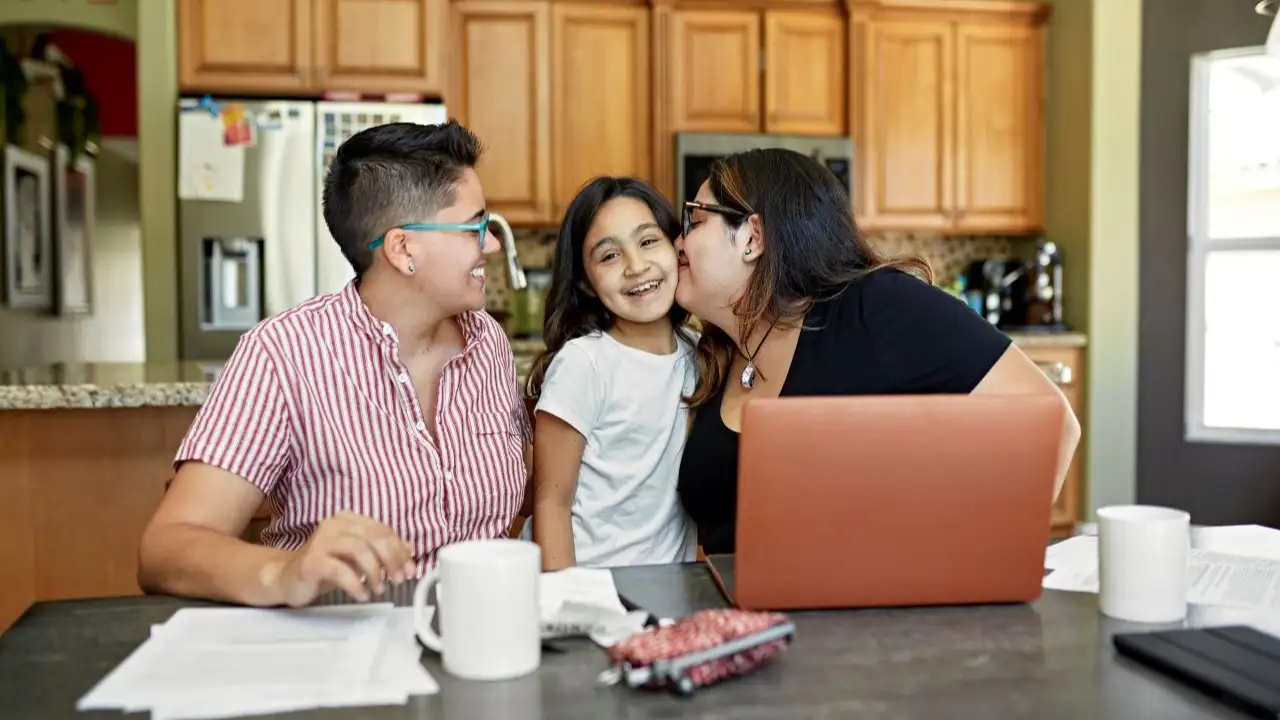
Money Tips & Education
6 hidden benefits of breaking free from the paycheck-to-paycheck cycle
Nov 06, 2024
Written by
Reviewed by
Key takeaways:
Breaking the paycheck-to-paycheck cycle could help you sleep better at night.
Unexpected expenses may be less likely to have a severe negative impact on your life when you’re not living paycheck-to-paycheck.
A free budgeting app could make it easier to take the reins on your money and create financial security for yourself.
Just because you currently live paycheck-to-paycheck doesn’t mean you’ll be in the same situation forever. You’ve got what it takes. Every decision you make is a building block for your future. So even if you start small, the effort is worth it. Every victory, no matter how small, creates momentum and makes it easier to keep moving forward.
If you need some motivation to keep going, take a look at some of the benefits of getting out of the paycheck-to-paycheck cycle.
1. Sleep better
Knowing that you have the money to pay your expenses, even without relying on your next paycheck, could ease some of the pressure you’re under. That could help you sleep so you can feel more rested in the mornings.
2. Focus on your financial goals
You’ve got aspirations. You might plan to replace your car, save up to buy a home, or even take your family on a long-deserved vacation.
When you break the paycheck-to-paycheck cycle, you put yourself in a better position to work toward those goals. Instead of using up every penny on today’s expenses, you could put a portion of each paycheck into separate savings accounts that you’ve set up for the goals that matter the most to you.
3. Get in control of your debt
Getting rid of your debts is huge when you’re tired of living paycheck-to-paycheck. When your debts are cleared, you won’t have to set aside money each month for those payments. Your life gets cheaper, too, when you break free from interest charges that eat up your cash and make it harder for you to get ahead. And you could also get rid of the stress that often goes along with debt.
Living with debt keeps you trapped in a paycheck-to-paycheck cycle, and breaking the cycle is a step toward minimizing your reliance on debt in the future.
You don’t have to already be debt-free to break away from the paycheck-to-paycheck life. Once you have enough cash set aside that you could get by, at least for a while, without your next paycheck, you’re officially there. And if you still have debt to deal with, that’s a great time to put the pedal to the metal on your debt payoff plan.
4. Find wiggle room for impulse buys and treats
Everyone likes to treat themselves now and then. Grabbing that slice of cheesecake around the corner from work on a Friday afternoon is a nice reward for all your hard work that week. Or maybe your favorite indulgence is this year’s cozy sweater when it goes on sale in the early fall.
When you live paycheck-to-paycheck, every dollar counts, and even small splurges like these can cause you stress and throw off your finances.
Breaking free from living paycheck-to-paycheck means you have a little more wiggle room.
In other words, you could still be on track with your financial goals, even if you enjoy an unplanned purchase once in a while.
5. Pay less in fees
Getting away from the paycheck-to-paycheck cycle could help you avoid expenses like overdraft fees and late fees.
Overdrafts are more likely to happen when you run short on money. When you’re paycheck-to-paycheck, you might sometimes spend more money than you have in your account. When this happens, your bank covers the transaction but charges for the privilege.
Living on the financial edge could also cause you to pay a bill late now and then. With many utilities, loans, credit cards, and other bills, once the payment due date passes, a late fee gets tacked on automatically. You might be able to get them to reverse it for you the first time, but generally not again after that.
Having a financial cushion to rely on could help you pay your bills when they’re due, even if the due date happens to come right before payday.
6. Be more prepared for emergencies
One way to be more prepared in life is to create an emergency fund. This is money you set aside that’s specifically earmarked for emergencies or unforeseen circumstances. Think of things like repairs when your car breaks down, a medical bill, or even losing your job.
Everybody has unplanned expenses sometimes. When you’re paycheck-to-paycheck, there’s no cash reserve you could use to handle life’s curveballs.
Having money left over before your next paycheck means you can start building your emergency fund.
Financial security isn’t reserved for other people. You can have it, too, no matter what your income is. When you’re doing the hard work of building your savings and getting another step ahead of your next paycheck, keep these benefits on your vision board.
Author Information
Written by
Sarah is a contributing writer for Achieve. She is a financial counselor accredited by the Association for Financial Counseling & Planning Education®, and a writer for other Fortune 500 publications.
Reviewed by
Jill is a personal finance editor at Achieve. For more than 10 years, she has been writing and editing helpful content on everything that touches a person’s finances, from Medicare to retirement plan rollovers to creating a spending budget.
Related Articles
Some credit checks affect your score, but others don’t, even from the same lender. We’ll explain when and why credit checks can affect your credit.
Jane Meggitt
Author
Myth-busting: you don’t need to carry a credit card balance to have good credit! Learn how credit utilization affects credit scores.
Rebecca Lake
Author
Ready to take control of your money? Learn what a budget can do for you and how to make one.
Rebecca Lake
Author
Some credit checks affect your score, but others don’t, even from the same lender. We’ll explain when and why credit checks can affect your credit.
Jane Meggitt
Author
Myth-busting: you don’t need to carry a credit card balance to have good credit! Learn how credit utilization affects credit scores.
Rebecca Lake
Author
Ready to take control of your money? Learn what a budget can do for you and how to make one.
Rebecca Lake
Author


